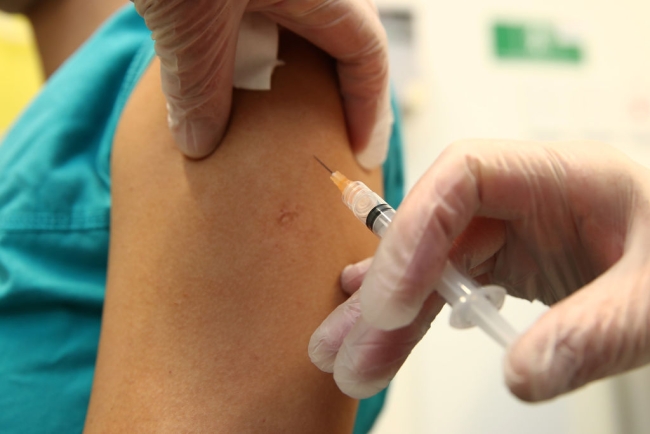You have /5 articles left.
Sign up for a free account or log in.

Fiona Goodall/Getty Images
Universities across the country are part of the urgent effort to research the virus SARS-CoV-2 and the disease it causes, COVID-19, together colloquially called the coronavirus. Globally, the virus has infected over 90,000 people and resulted in over 3,000 deaths, including nine in the United States.
After receiving approval from the Centers for Disease Control and Prevention, researchers at the University of Pittsburgh have received vials of the virus for study. The Center for Vaccine Research at the university, where Dr. Jonas Salk developed the polio vaccine, will be working on a potential vaccine candidate.
Paul Duprex, director for Pitt’s Center for Vaccine Research, told the Pittsburgh Business Times that the research may require hundreds of thousands of dollars in funding.
“Making vaccines [is] not cheap,” he said.
A team at the University of Texas at Austin also is working on new coronavirus research. Last month those researchers created the first molecular map of the virus’s spike protein, the part that attaches to and infects human cells. This map will be essential in creating vaccines and drugs for the disease, the university has said. The research was supported in part by the National Institutes of Health and supervised by staff members from the institute’s Vaccine Research Center. The associated paper was published in the journal Science.
News outlets have reported that researchers at the Washington University in St. Louis, Colorado State University and Baylor College of Medicine also are working on vaccine development, often building off research that already has been conducted at those institutions.
Vaccine candidates must go through rigorous testing before they can be deployed to the general population. Any vaccine that is developed likely will be manufactured by large pharmaceutical firms. Those companies are similarly racing to develop a candidate. If a university patents a viable vaccine, it potentially could yield substantial revenue.
The drug company Moderna delivered the first batch of its vaccine candidate to government researchers at the National Institute of Allergy and Infectious Diseases late last month, The Wall Street Journal reported. The institute expects a small-scale clinical trial on healthy adults to start before the end of April. Even if the study yields promising results, NIAID officials have said the vaccine would not be available until next year because further studies and regulatory hoops will need to be cleared.




